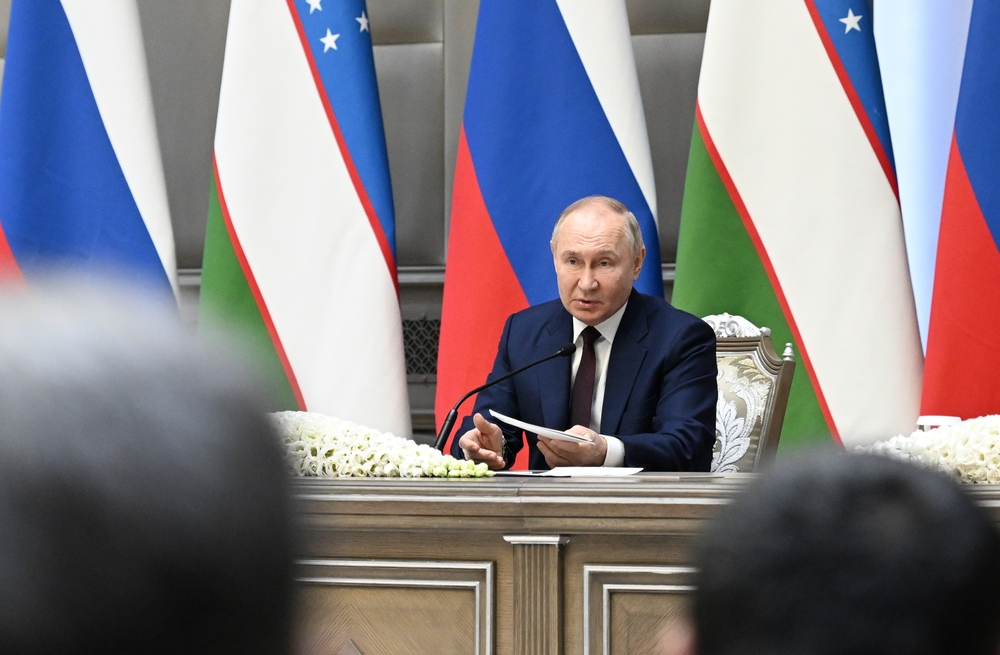In a bold move to assert Russia’s influence on the global stage, President Vladimir Putin, who faces international isolation and an International Criminal Court (ICC) arrest warrant, hosted 36 world leaders at the BRICS summit in Kazan, Russia. Despite the looming threat of being labeled a war criminal, Putin welcomed key players from the BRICS group, signaling his intent to challenge Western economic dominance and reframe Russia’s position in global geopolitics.
A Summit to Challenge the Dollar’s Dominance
The BRICS summit, part of Russia’s leadership of the group this year, saw participation from influential leaders including Indian Prime Minister Narendra Modi, Chinese President Xi Jinping, and representatives from Iran. A primary focus of the gathering was the collective effort to reduce the global reliance on the US dollar in international transactions. This strategy, supported by China and Russia, seeks to undercut the power of U.S. sanctions, which have long been a tool for the West to exert pressure on countries like Russia and Iran.
As the global economic landscape evolves, the BRICS countries—originally composed of Brazil, Russia, India, China, and South Africa—are increasingly seeking ways to create a financial system less dependent on Western institutions. This year’s summit also marked a significant moment for the group’s expansion, as new members such as Egypt, the UAE, and Iran joined the bloc, with Turkey and Saudi Arabia showing interest. However, with the expansion, the group faces challenges in maintaining ideological unity, especially as member nations like Brazil prefer a more balanced stance, avoiding overt anti-Western positions.
UN Secretary General’s Attendance in Doubt
One of the key uncertainties surrounding the summit was the possible attendance of UN Secretary General António Guterres. Russia had hinted at his participation, but no clear confirmation was offered by Guterres’ spokesperson. His attendance could be perceived as controversial, particularly in the context of the ICC’s warrant for Putin’s arrest, issued over the alleged abduction of Ukrainian children. Guterres’ presence would raise questions about his stance in the West-Russia divide, particularly given the ongoing conflict in Ukraine.
Close Ties Between China and Russia
The BRICS summit underscored the deepening relationship between Russia and China, with Xi Jinping addressing Putin as a “dear friend.” This public display of camaraderie between the two leaders highlights their shared vision of countering Western dominance. China’s backing of Russia on key geopolitical issues has been crucial to Putin’s foreign policy strategy, particularly as Russia faces increasing pressure from Western countries over its invasion of Ukraine.
India, on the other hand, maintained a more neutral position, with Prime Minister Narendra Modi reiterating his call for a peaceful resolution to the Ukraine conflict. India has managed to balance its BRICS participation without fully aligning with Russia’s more confrontational approach towards the West.
Expansion of BRICS: A Double-Edged Sword?
The expansion of BRICS, while a sign of the bloc’s growing influence, also presents risks. As new countries such as Egypt, Iran, and the UAE join the fold, and others like Turkey and Saudi Arabia signal their interest, the group’s ideological cohesion may begin to fray. Countries like China and Russia are eager to push for greater independence from Western-dominated financial systems, while others, such as Brazil, prefer a more pragmatic approach, aiming to maintain good relations with both the West and the East.
This internal divide could challenge the effectiveness of BRICS as a unified force in reshaping global financial and political systems. However, the group’s expansion is also a testament to the appeal of a multipolar world order, where emerging economies have more autonomy and less reliance on Western powers.
Putin’s Vision of a New Global Order
Throughout the summit, Putin’s rhetoric suggested his broader ambition to construct a new global order, one in which Russia plays a central role. He presented BRICS as a counterweight to Western influence, promoting a vision of a multipolar world where countries like Russia and China can lead without being constrained by Western economic systems and political alliances.
However, the success of this vision hinges on several factors, including the outcome of the conflict in Ukraine and upcoming geopolitical shifts, such as the U.S. presidential election. Depending on how these events unfold, Russia’s position in the global hierarchy could either be strengthened or further isolated.
Putin’s hosting of the BRICS summit, despite his international isolation, signals Russia’s determination to remain a key player in global geopolitics. The efforts to challenge the U.S. dollar and expand the BRICS alliance reflect a growing desire for autonomy from Western economic dominance. However, the path forward is fraught with challenges, particularly as the group expands and navigates differing ideologies. The outcome of the summit, and Russia’s future in the geopolitical landscape, will likely depend on how the conflict in Ukraine and other global shifts unfold in the coming months.


